Latest Posts
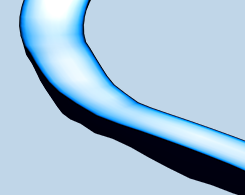
Modeling the Flow of Ice in COMSOL Multiphysics®
The dynamics of glaciers are a complex (and “cool”) subject to study. One method is by using fluid flow simulation to analyze the flow of ice, from accumulation to ablation.
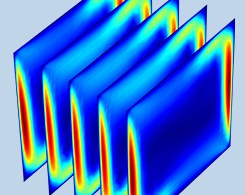
Simulating Natural Convection in Air with COMSOL Multiphysics®
From small electronic components to large buildings, natural convection is a transport phenomena found in engineering disciplines of all sizes. Here’s an example of natural convection in air.

Happy Birthday, Robert Maillart
Balancing structural engineering and artistic capabilities, civil engineer Robert Maillart designed some of the world’s most impressive bridges, including the Salginatobel and Schwandbach.

Optimizing Thermophotovoltaic Designs with Heat Transfer Simulation
Thermophotovoltaic (TPV) systems, known for their flexible fuel choice options, immovable parts, and potential for efficient power generation, can be optimized with heat transfer modeling.
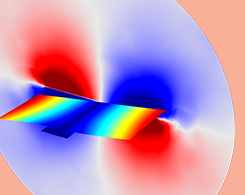
Analyzing the Viscous and Thermal Damping of a MEMS Micromirror
Micromirrors are efficient and inexpensive. Here, we go over 2 types of analyses for a MEMS micromirror design, frequency-domain and transient, using the COMSOL® software.
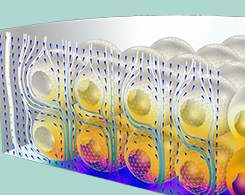
Modeling Adsorption at Surfaces in COMSOL Multiphysics®
What is adsorption? Learn the theory behind this chemical engineering phenomenon as well as how to model the process at surfaces in the COMSOL® software.
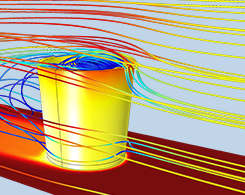
How to Model Moisture Flow in COMSOL Multiphysics®
Learn how to model moisture flow in COMSOL Multiphysics®, which you can apply to industrial examples such as building envelopes and food packaging.
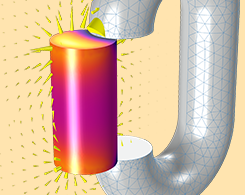
Modeling Ferromagnetic Materials in COMSOL Multiphysics®
Get a comprehensive guide to modeling ferromagnetic materials in COMSOL Multiphysics®, including an introduction to the theory and a series of useful animations.
